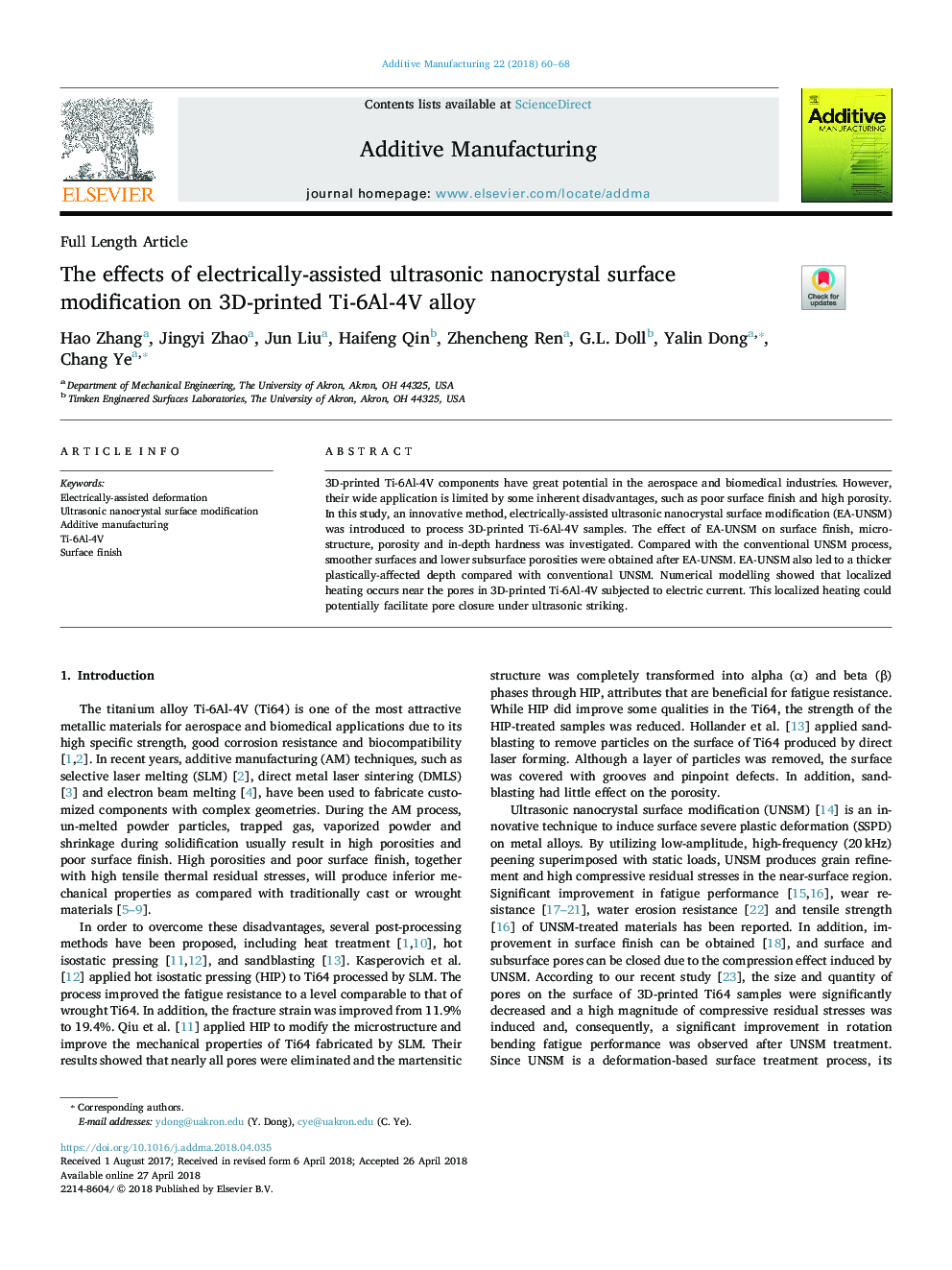| Article ID | Journal | Published Year | Pages | File Type |
|---|---|---|---|---|
| 7205706 | Additive Manufacturing | 2018 | 9 Pages |
Abstract
3D-printed Ti-6Al-4V components have great potential in the aerospace and biomedical industries. However, their wide application is limited by some inherent disadvantages, such as poor surface finish and high porosity. In this study, an innovative method, electrically-assisted ultrasonic nanocrystal surface modification (EA-UNSM) was introduced to process 3D-printed Ti-6Al-4V samples. The effect of EA-UNSM on surface finish, microstructure, porosity and in-depth hardness was investigated. Compared with the conventional UNSM process, smoother surfaces and lower subsurface porosities were obtained after EA-UNSM. EA-UNSM also led to a thicker plastically-affected depth compared with conventional UNSM. Numerical modelling showed that localized heating occurs near the pores in 3D-printed Ti-6Al-4V subjected to electric current. This localized heating could potentially facilitate pore closure under ultrasonic striking.
Related Topics
Physical Sciences and Engineering
Engineering
Industrial and Manufacturing Engineering
Authors
Hao Zhang, Jingyi Zhao, Jun Liu, Haifeng Qin, Zhencheng Ren, G.L. Doll, Yalin Dong, Chang Ye,
